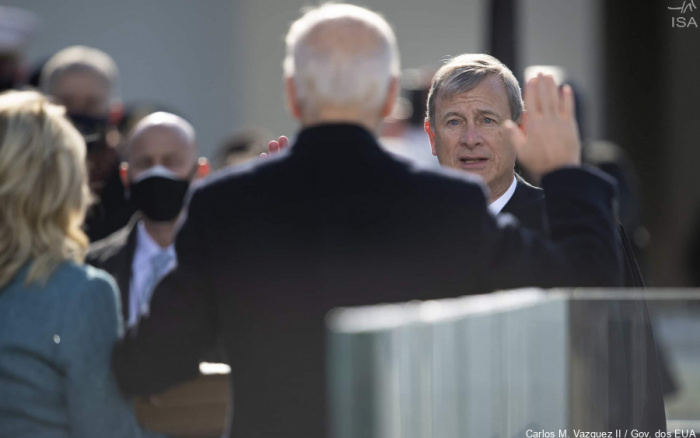Você está na versão anterior do website do ISA
Atenção
Essa é a versão antiga do site do ISA que ficou no ar até março de 2022. As informações institucionais aqui contidas podem estar desatualizadas. Acesse https://www.socioambiental.org para a versão atual.
Bolsonaro & Biden: the Amazon cannot be protected without transparency
Wednesday, 14 de April de 2021 
Programa:
ISA
Between 2004 and 2012, Brazil promoted, through the reduction of deforestation in the Amazon, from 27.772 km2 in 2004 to 4.571 km2 in 2012, the greatest reduction in emissions under the United Nations Framework Convention on Climate Change so far. There were many efforts and actors involved to make this possible among different federal agencies, state governments, scientists, civil society organizations, local communities and the private sector. Transparency and perseverance were essential ingredients of that recipe.
But in recent years control of deforestation has severely weakened, especially in the current government. In 2020 the deforestation was 11.088Km2. All support to face the challenge of deforestation is welcome, especially when this support comes in the context of the new climate plan and the reinforcement of the Paris Agreement by the Biden administration, which might impact climate action worldwide.
However the success of any initiative to reduce the destruction of the forest and promote its sustainable development depends on the engagement of various social and political actors in the region, and must be designed, from the beginning, with their participation. It is not a mere formality, but the recognition that they are essential since there will be no solution apart from them.
Consultations and negotiations between governments are typical of formal relations among countries, but the public announcement of agreements involving the rights and interests of all must be preceded by consultations, in order to avoid misunderstandings, constraints and negative reactions. Those who protect the forest are not in the federal administration.
The current government policies do not connect with state governments, social movements, civil society organizations, research institutions and sustainable business coalitions, which are essential to promote consistent deforestation reductions in in the Amazon Rainforest, as occurred between 2004 and 2012.
Transparency must underpin diplomatic agreements. The absence of this essential element, on the contrary, tends to increase the margin of error in any negotiation and the difficulties of understanding about the policies of each part. In this case, the negative impact of a premature announcement will end up affecting the very credibility of Biden's climate policy and, on the other hand, honoring a Brazilian government that, at least until now, has not shown itself willing to effectively commit against climate change and deforestation.
Imagens:



